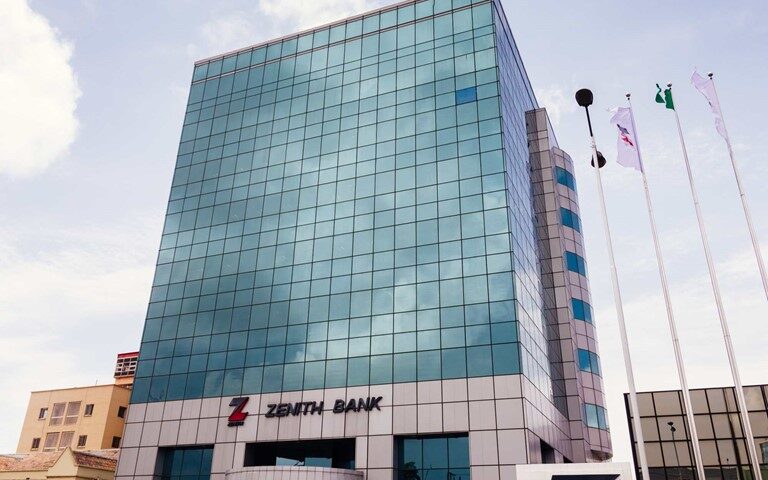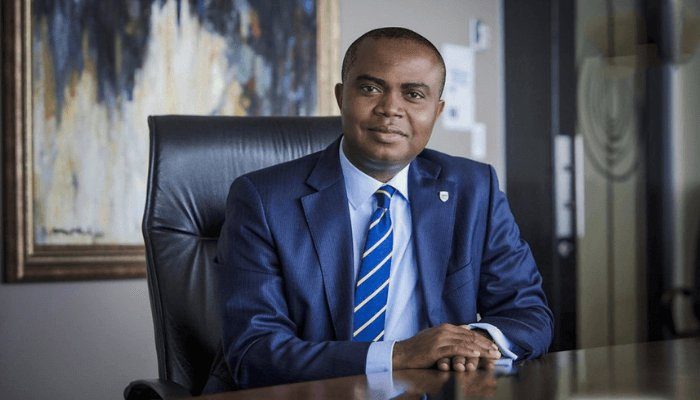•Seeks massive deployment of technology in crude production
•Wants end to multiple taxes, inflated project costs
•Expressm
concern over overlapping mandates of sector regulators
•Advocates increase of NCI fund from $450m to $1bn
Emmanuel Addeh in Abuja and Peter Uzoho in Lagos
A former Minister of State for Petroleum and Group Managing Director of the Nigerian National Petroleum Company Limited (NNPC), Prof. Ibe Kachikwu, has said that if the Nigerian oil industry must witness a significant leap, the national oil company must be weaned from political interference.
Kachikwu, who spoke at the Nigerian Content Development Monitoring Board (NCDMB) Business Mentorship Series 2025, which was held online, also opined that regulatory agencies as well as persons appointed to head them must be picked on the basis of nonpartisanship.
The former Executive Vice Chairman of Mobil Producing Nigeria (MPN), posited that overcoming Nigeria’s many challenges in the sector requires a clear vision, disciplined execution, and strong political will.
Besides the depoliticisation of the NNPC and the sector regulators like the Nigerian Upstream Petroleum Regulatory Commission (NUPRC) and the Nigerian Midstream and Downstream Petroleum Regulatory Authority (NMDPRA), Kachikwu stressed that technology deployment must be taken seriously, including investment in automation, digital twin modeling, and artificial intelligence for exploration and production.
In the same vein, Kachikwu, who was minister between 2015 and 2019 under later President Muhammadu Buhari, called for the use of real-time pipeline monitoring to curb oil theft as well as the application of predictive maintenance to extend the life of aging infrastructure.
“(There’s also a need to) reduce one of Africa’s highest operating costs per barrel by streamlining regulatory processes, cutting multiple taxation, and clustering marginal fields to achieve economies of scale (and) implement transparent procurement systems to eliminate inflated project costs.
“(Also) Provide certainty for investors by adhering to frameworks in the Petroleum Industry Act (PIA). Avoid frequent fiscal policy changes. Ensure licensing, royalties, and taxes remain predictable rather than driven by political expediency.
“ Depoliticisation of governance: Insulate NNPC Limited and regulatory agencies from political interference. Appoint leaders based on competence, not patronage. This will improve accountability and institutional performance,” Kachikwu suggested.
He also stated that grievances by people from the Niger Delta must be addressed while host communities must be engaged genuinely. Similarly, he argued for the management of the Host Community Development Fund (HCDF) transparently with a clear monitoring framework.
While urging the authorities and oil industry players to invest long-term in education, health, and infrastructure to build trust and reduce militancy, Kachikwu noted that to ensure security, satellite surveillance, drones, and modern security systems should be deployed.
He also advocated strengthening of judicial processes for swift prosecution of oil theft and partnering with local communities to enhance intelligence gathering.
To re-attract foreign and domestic capital, the former minister emphasised that there was a need to encourage industry players through tax holidays for frontier basin projects, ease of profit repatriation, and risk capital guarantees.
Kachikwu further explained that Nigeria should leverage international green financing mechanisms to support energy transition goals and proactively diversify by investing in renewable energy.
Tracking the decline in the oil and gas sector, Kachikwu stated that the period from 2015 onwards has been marked by production decline, revenue volatility, and new global challenges.
Between 2017 and 2023, Nigeria’s oil production, he said, fell from over 2.1 million barrels per day to below 1.4 million bpd and in 2022 failed to meet its OPEC quota for 12 consecutive months.
“Several interrelated factors contributed to this stagnation. First, pipeline vandalism and oil theft reached unprecedented levels. The Niger Delta region saw renewed militant activity, including attacks on major infrastructure by groups such as the Niger Delta Avengers. Oil theft was estimated to cost the country over $2 billion annually according to data from the Nigeria Extractive Industries Transparency Initiative (NEITI).
“Second, the industry suffered from chronic underinvestment. Many international oil companies began to divest from Nigeria’s onshore assets, citing security risks, litigation threats, and environmental obligations. These divestments created operational gaps that local companies were not immediately ready to fill.
“Third, regulatory uncertainty created a difficult investment climate. For over a decade, the Petroleum Industry Bill faced repeated delays. Investors became reluctant to commit long-term capital in the absence of a clear legal and fiscal framework. Although the Petroleum Industry Act was eventually signed into law in 2021, its delayed implementation left a legacy of distrust.
“Fourth, infrastructure decay also played a major role. Many of Nigeria’s pipelines, flow stations, and terminals were more than 40 years old. Poor maintenance led to frequent shutdowns, leakages, and losses. Refineries operated at less than 10 per cent capacity for most of the period and were eventually shut down for rehabilitation.
“Finally, the global transition to clean energy posed a structural threat. As the world moved toward renews and net-zero emissions, fossil fuel projects came under intense scrutiny, financial institutions began withdrawing funding from oil and gas projects, Nigeria found itself in a race against time to extract maximum value from its reserves before global demand declined,“ he recalled.
However, despite the challenges of recent years, the former NNPC GMD said that Nigeria’s oil industry is experiencing a transformation in structure and ownership, with the emergence of domestic players being one of the most significant developments.
According to him, companies such as Seplat, Aiteo, Oando Energy Resources, and Heirs Oil and Gas have taken over assets formerly held by multinationals and are becoming increasingly influential in the upstream sector.
However, he pointed out that the rollout of the PIA has been inconsistent as regulatory institutions are still finding their footing, and there are concerns over overlapping mandates and limited capacity.
“Political interference remains a risk, especially in licensing, project approvals, and disbursement. There have also been fiscal policy shifts that have discouraged investment. Issues such as multiple taxation, currency instability, summersaults, including fuel subsidy retum under a different name and ad hoc import restrictions, have further undermined investor confidence.
“Nonetheless, opportunities remain. The commissioning of the Dangote Refinery promises to reduce dependence on imported refined products and conserve foreign exchange,” he explained.
Kachikwu also canvassed that the $450 million Nigerian Content Intervention Fund (NCI Fund) be increased to $1 billion, to cater for the funding of mega oil and gas projects, setting up of pipe mills and manufacturing of other critical equipment needed in the oil and gas sector.
He recommended that oil and gas producing companies be asked to provide timelines for developing oil and gas blocks, the same condition for firms that win industry contracts based on commitments of investments.
Kachikwu stated that a larger NCI Fund will provide seed capital for developing blocks, accessing technology, skill sets and equipment, stressing that the fund should include contributions from operators, and other investors in the sector and not just government resources.
Besides, he regretted that many awardees of oil blocks in Nigeria treat them like certificates of occupancy for land, causing huge losses to the nation. He advised the federal government to cancel oil blocks that are not developed after a prolonged period.
He said: “We need to find a way to force performance in the industry. Some companies get contracts to import pipelines with proviso to invest locally. We need to begin to produce those equipment. You have to show the joint venture that you are setting up to produce pipes, where is the foreign partner with the funds and technology? You need to give a timeline.”
Commenting on the global investments space and how Nigeria can attract funding to the energy sector, the former minister argued that “there is a lot of money waiting to be tapped, however it is only going to countries where there is a perception of regularity.”
He opined that Nigeria’s image needs to improve, adding that the government needs to create the right investment climate to attract investment.
“There is enough investment money out there if you have a holding of hands. They need to portray Nigeria as the place where you can put money and get good returns”, Kachikwu stated.
He also argued that the government should consider co-investing with private companies if there are good prospects of returns.
The post Kachikwu: FG Must Insulate NNPC, NUPRC, NMDPRA from Political Interference to Restore Confidence in Oil Sector appeared first on THISDAYLIVE.



